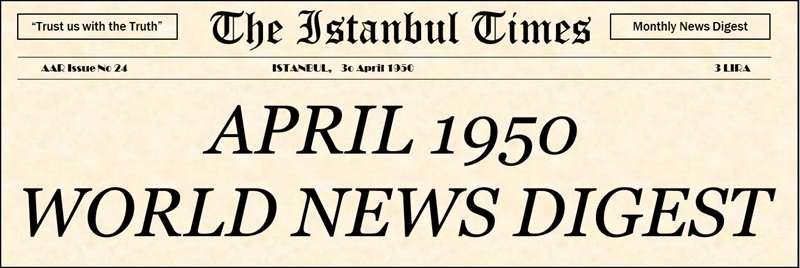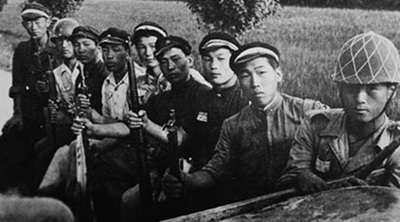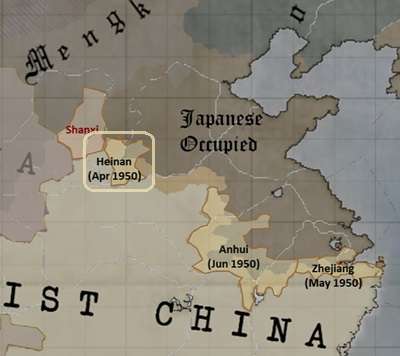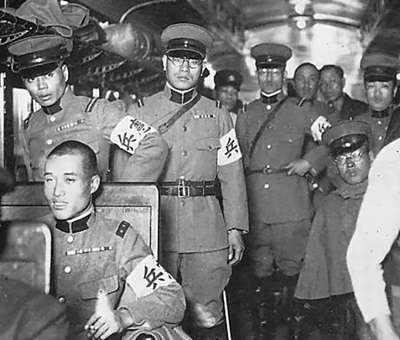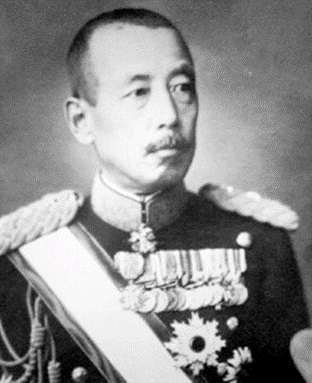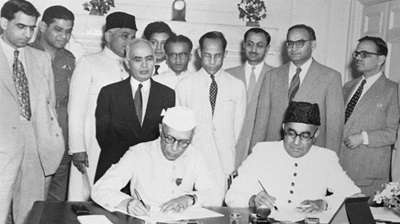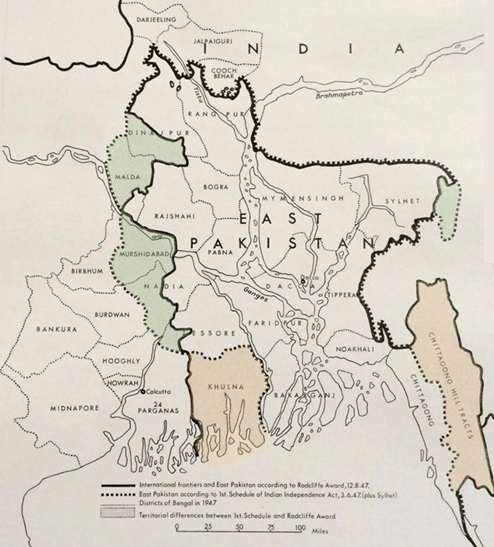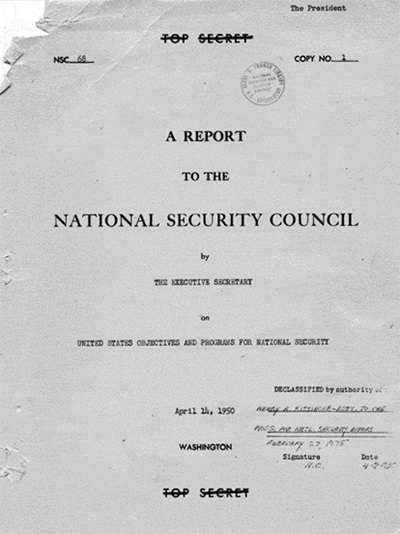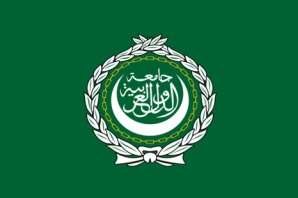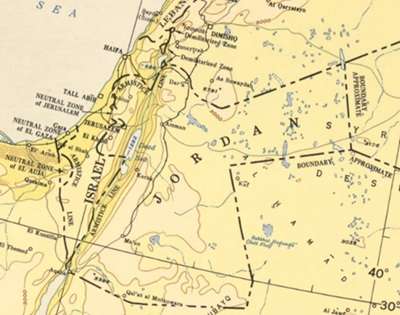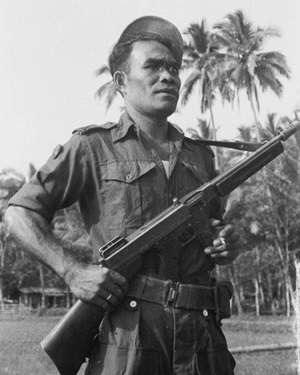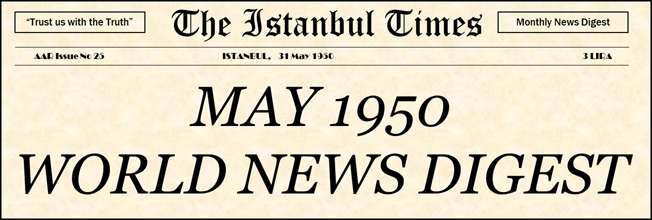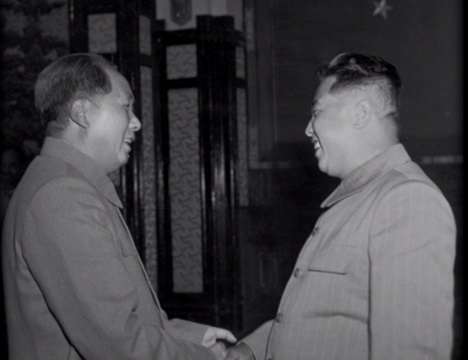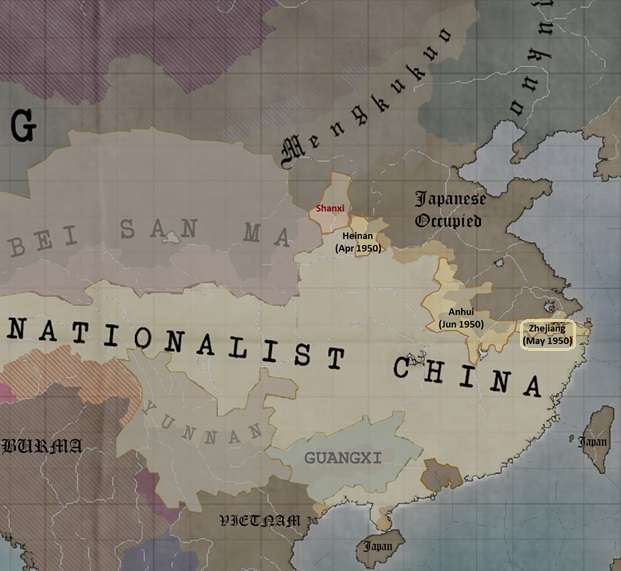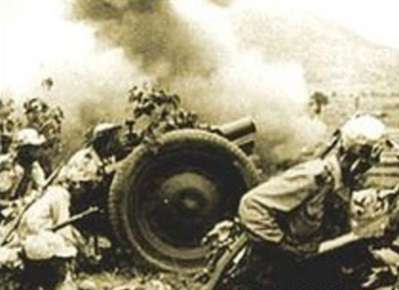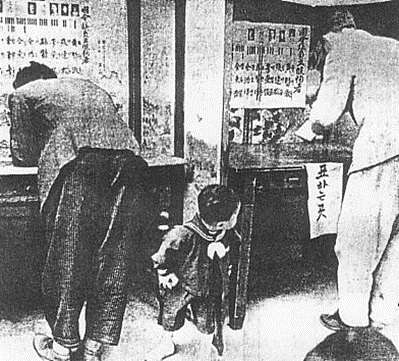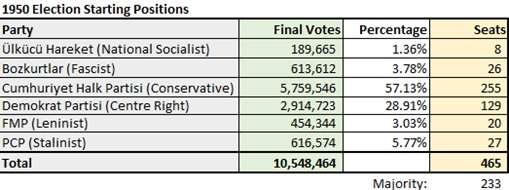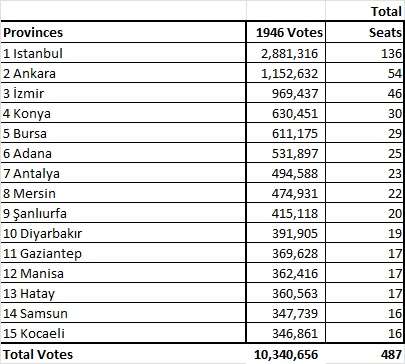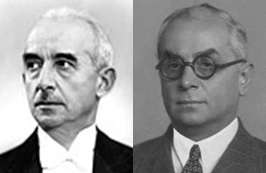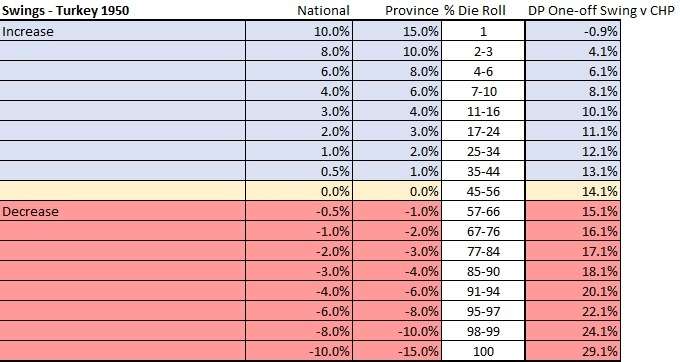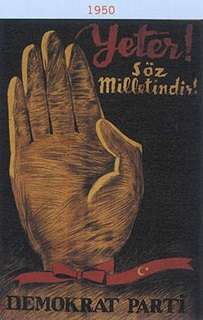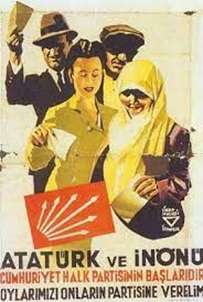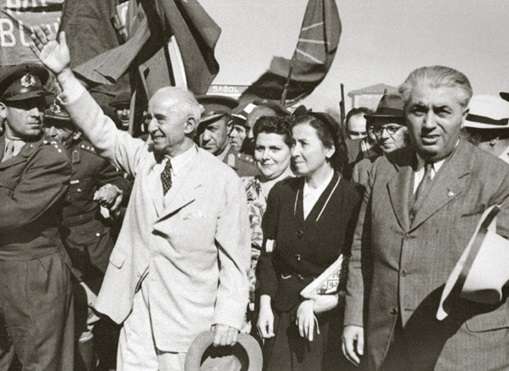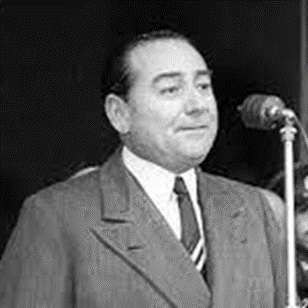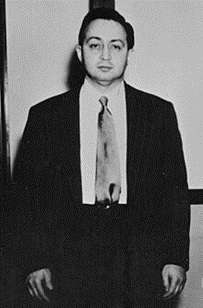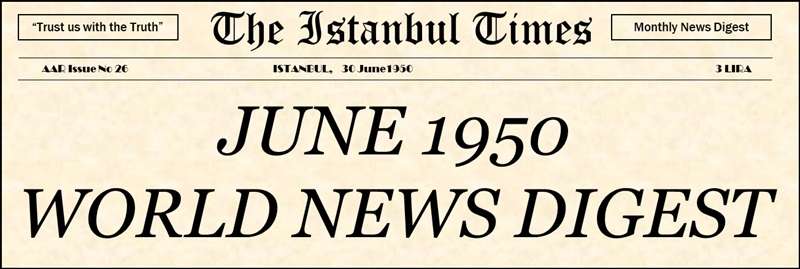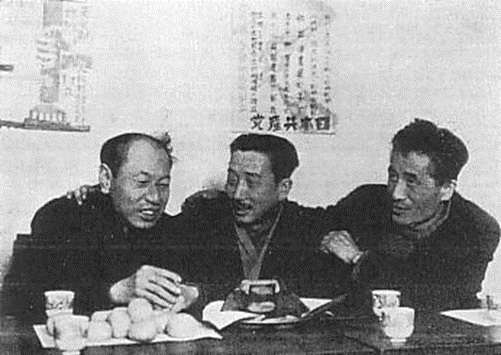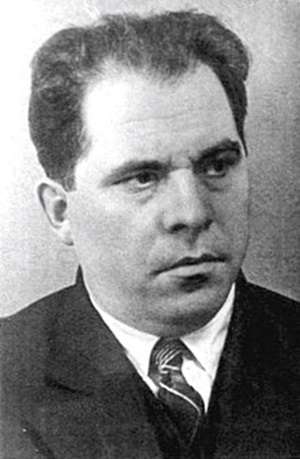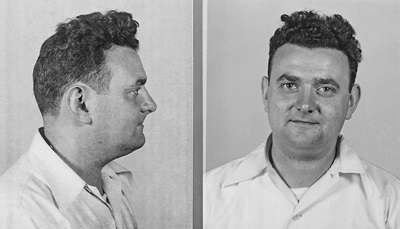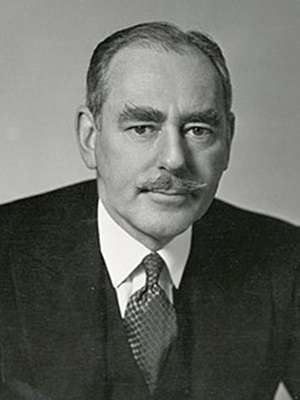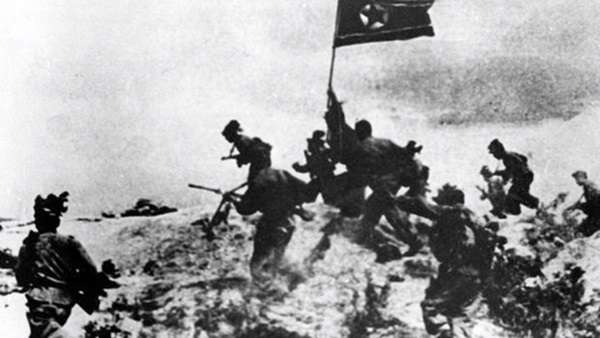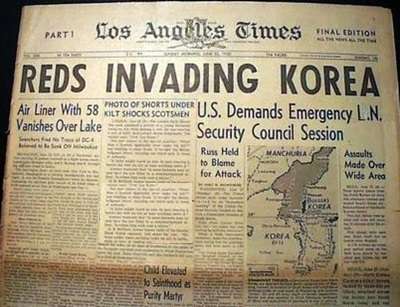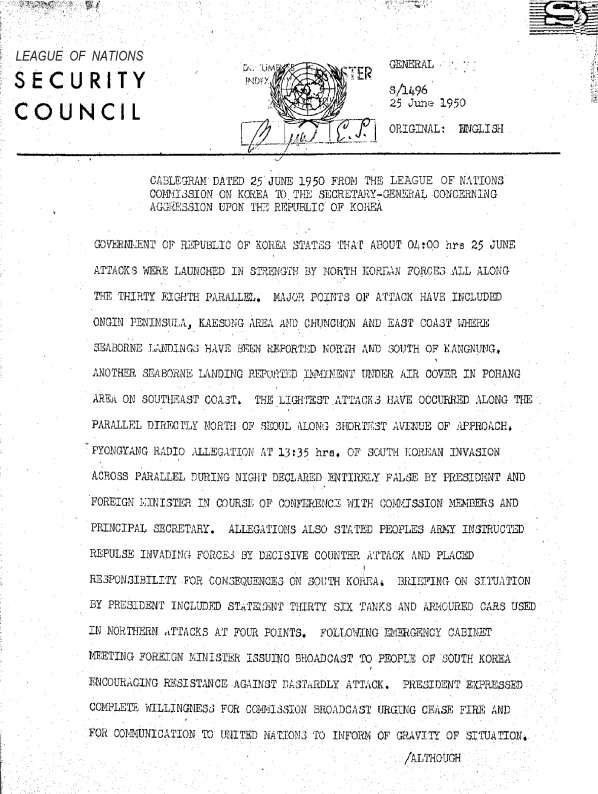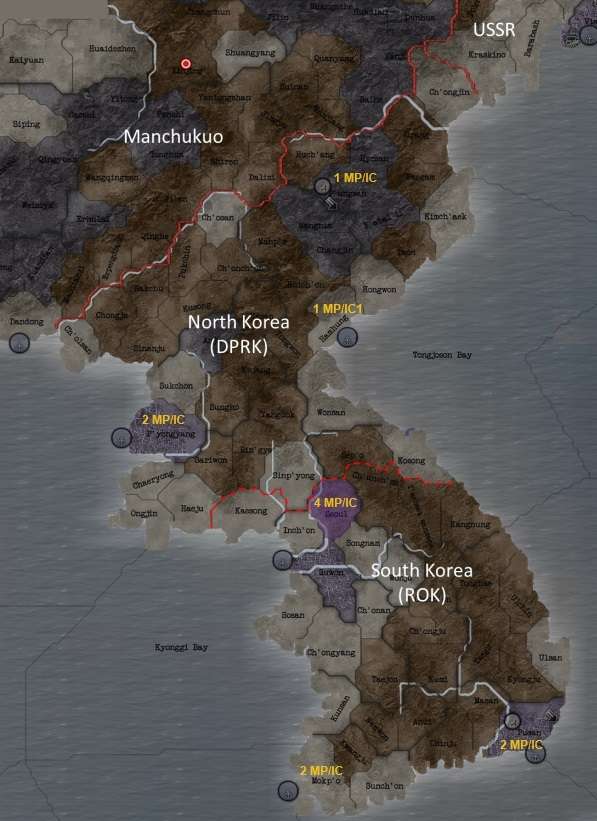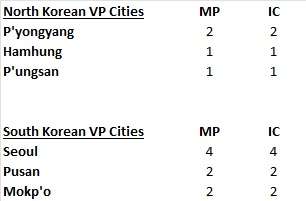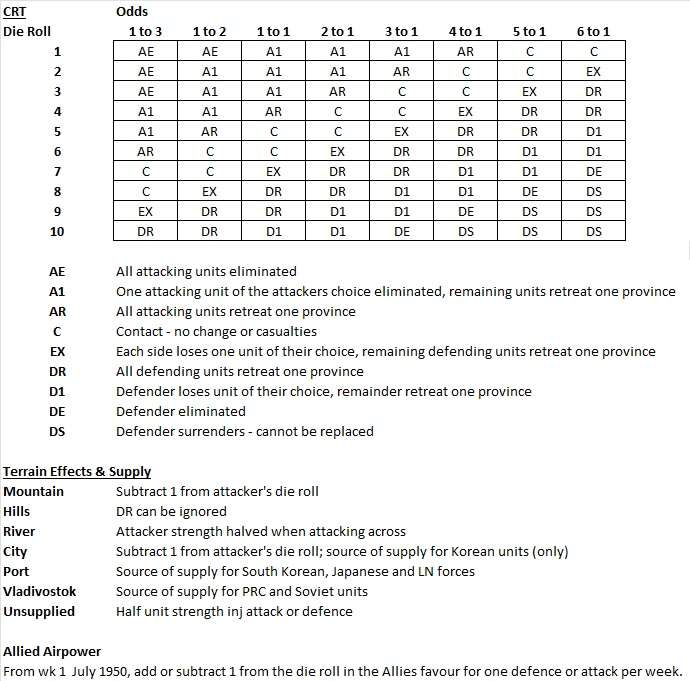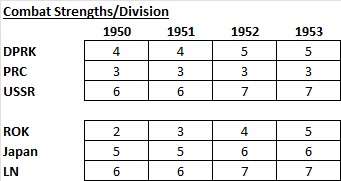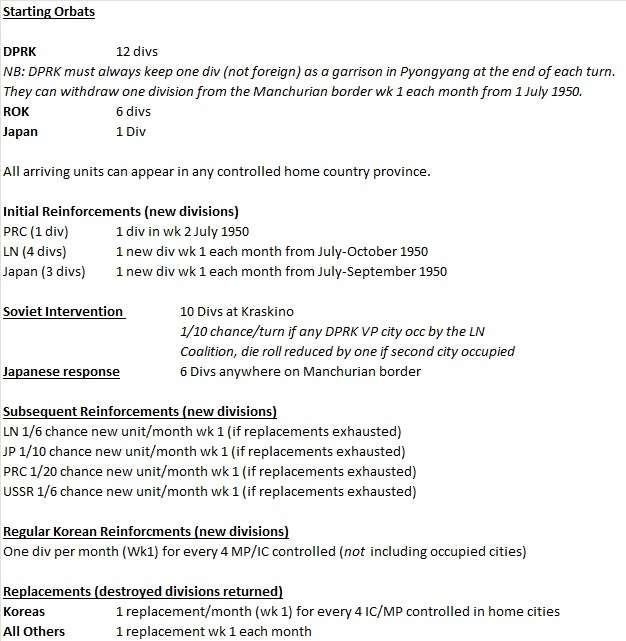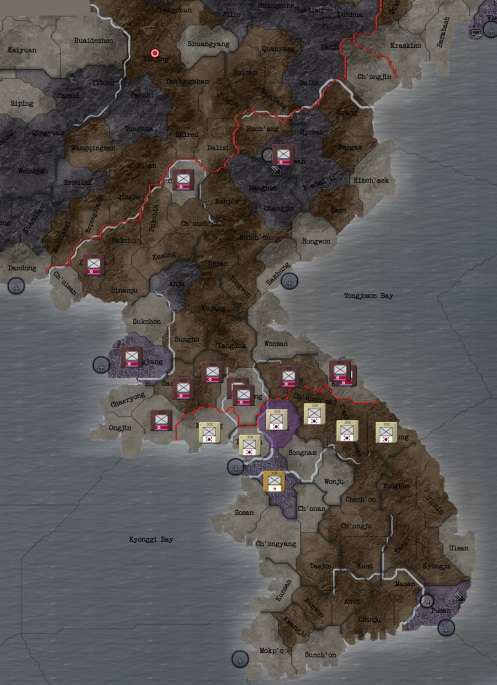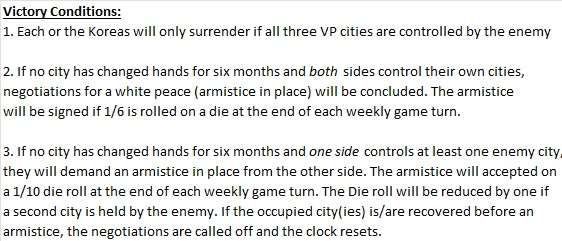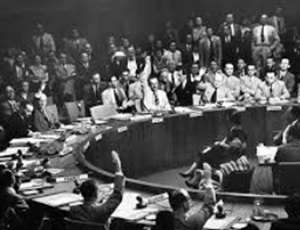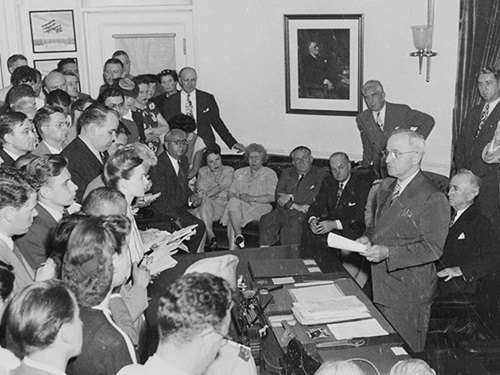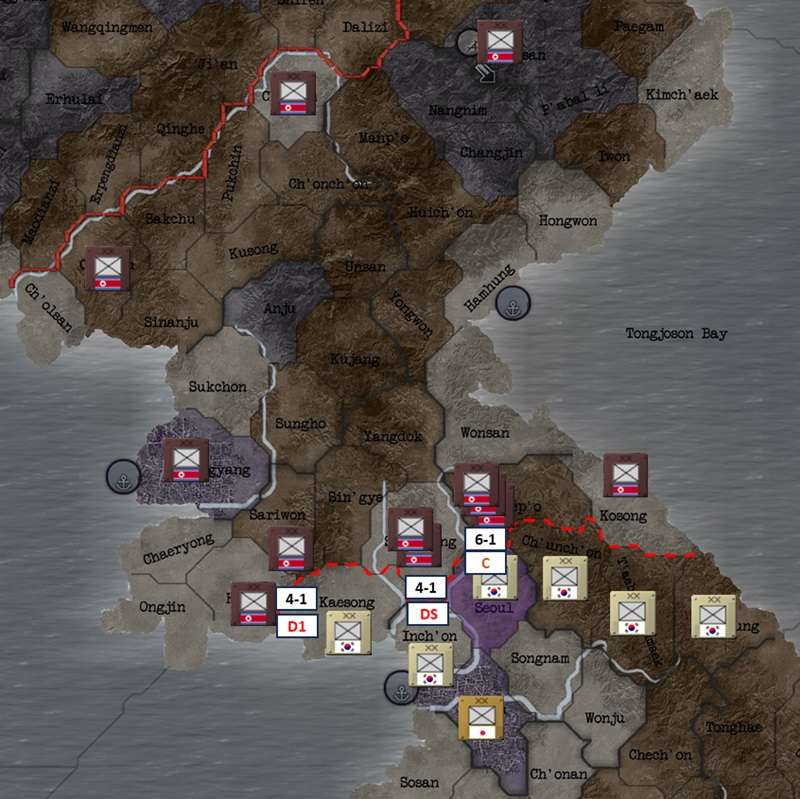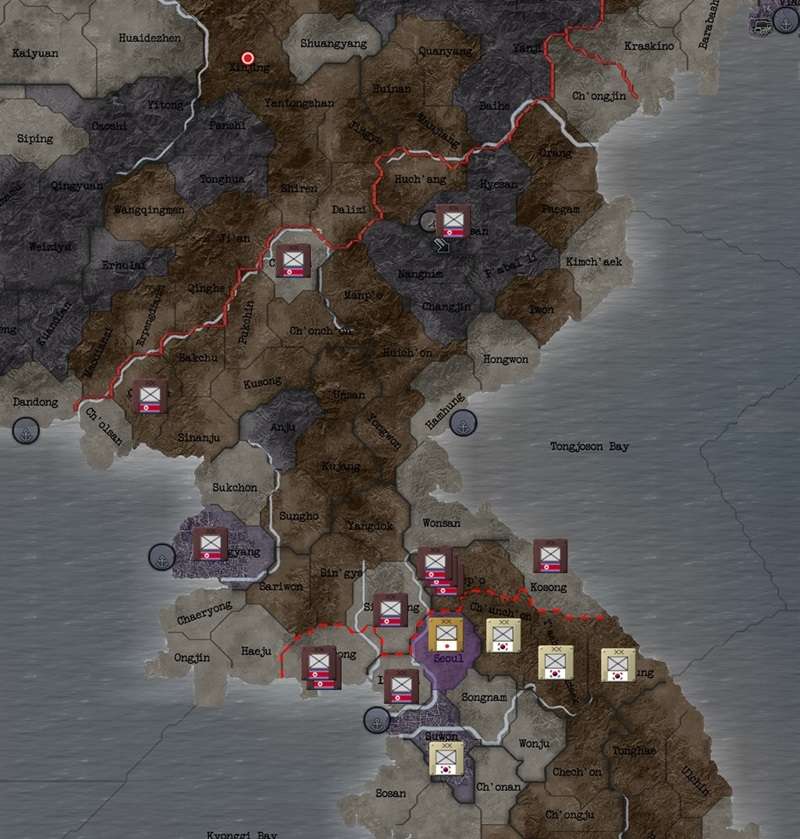Chapter 276: June 1950
Japan
On 6 June the "Red Purge", a political action by the Tokyo government against officials of the Japanese Communist Party, was launched. Over the next seven months, the purge was extended to party members and sympathisers, and 20,997 public and private employees were fired from their jobs, leftist newspapers were put out of business, and leftist student organisations were raided.
JCP leaders Kyuichi Tokuda, Sanzō Nosaka and Yoshio Shiga (from left to right) immediately following the end of the Second Great War. Released during the aftermath, they were all ‘purged’ from political activity in June 1950, as anti-communist sentiment hardened and tensions on the Korean peninsula mounted. The started operating underground from that point.
---xxx---
Soviet Bloc
The Communist governments of Poland and Germany agreed 7 June to set the border between their two nations as the Oder River and the Neisse River, with the Germans relinquishing claims to the territory lost in Great War Two.
Soviet Finance Minister Arseny Zverev (b. 2 March 1900) told a joint meeting of the Supreme Soviet on 13 June that the nation's defence budget for 1950–1951 would be cut by 18.5%.
Soviet Finance Minister Arseny Zverev.
---xxx---
United States
David Greenglass, a technician with the Oak Ridge and Los Alamos facilities in the American nuclear program, was arrested on 22 June and charged with spying for the Soviet Union. He implicated his sister and her husband (Ethel Rosenberg and Julius Rosenberg), as the persons who recruited him to the espionage. He agreed to testify against both of them, and would draw a reduced prison sentence. His wife, Ruth Greenglass, was never charged despite being identified as a Soviet agent.
David Greenglass’s arrest mug shot, 22 June 1950.
In a small upstate Californian town, a certain couple had their photo taken by the local portrait photographer. They simply referred to themselves as ‘Bud and Perse’.
‘Bud and Perse’, June 1950.
---xxx---
Korea
On 8 June newspapers in Pyongyang, the capital of Communist North Korea, published the manifesto of the "Central Committee of the United Democratic Patriotic Front", adopted the day before, announcing the goal of reunification of North Korea and South Korea starting with meetings on August 15.
An official of the League of Nations Commission on Korea crossed into North Korea on 10 June and received the text of that nation's proposal for unification with South Korea, bringing back three "peace representatives" from the North.
The three North Korean "peace representatives", who had crossed into South Korea on Saturday, were arrested by South Korea on 13 June.
A representative of US Secretary of State Dean Acheson told the South Korean legislature on 19 June that the US would come to South Korea's defence in the event of an attack, on a ‘one-for-one’ basis with Japan. The next day Acheson told a US Senate committee that it was unlikely that North Korea would go to war with South Korea.
US Secretary of State Dean Acheson.
The Korean War began at 4:00 in the morning KST on 25 June 1950 (24 June – 7pm UTC), when South Korean army bases near the border with North Korea, at Yeoncheon, came under fire without warning. After 45 minutes of shelling, North Korean troops invaded with eight infantry divisions
[six in OTL, plus an armoured brigade and three border brigades] coming across the 38th parallel. With many of their personnel on weekend leave, the six [four in OTL] South Korean divisions in the area were quickly put under pressure. One Japanese division was garrisoned in the nearby port of Suwon.
DPRK troops launch their initial attack on 25 June 1950.
That same day, in response to the North Korean invasion, League of Nations Security Council Resolution 82 was voted upon, calling for "an immediate cessation of hostilities" and for "North Korea to withdraw forthwith their armed forces to the 38th parallel". The vote was 9-0 – the USSR, a permanent member which could have vetoed the resolution was absent because it had walked out of the LN on 10 January.
LN Commission on Korea cable of 25 June 1950, reporting on the invasion of the South.
---xxx---
Korea Mini-Wargame - Description
I’ve decided to play the Korean War as a mini-wargame, using a mix of the HOI3 map and IC/MP information and some game mechanics based around the old Avalon Hill Russian Campaign board game. Here are the basics, the rest I just moderate as I go along. I let divisions move two provinces in the weekly movement phase. Divisions have been simplified to infantry only, with LN divisions being composite rather than nationally based.
First, here is the blank map based on HOI3, with the MP/IC (straight from the game) VP cities indicated. Manchukuo and the USSR start the war as neutral. We can assume there’s a bit of low-level border skirmishing happening ‘off map’ along the GEACPS/USSR border, also perhaps a bit of PLA insurgency in Manchuria.
This table summarises those six key cities.
Here is the combat results (made into a ten sided die role rather than six to provide a bit more variation and uncertainty) and terrain effects tables. Instead of reducing odds or doubling defence in mountains, I’ve gone for subtracting from die rolls instead. And that is how LN-Japanese air power superiority has been represented. If the LN want to use air support for an attack, they must choose not to use it during their defensive phase (ie the DPRK move/attack phase).
Rather than making counters with combat strength numbers on them, those remain blank in display, but the table below shows the strength for each division by nationality, which will increase over time on an annual basis until 1953. South Korean units start off weakest, reflecting low training and poor initial equipment. By 1953 they will be on a par with the North. I just made this arbitrary, based on ‘the vibe’ I felt!
The next table has the starting orbats, programmed initial reinforcements (showing a strong build-up of both Japanese and LN divisions), opportunities for subsequent reinforcements (ie new units) as the war wears on, and also provision for replacements (representing rebuilt units that have been effectively destroyed previously). For foreign powers, reinforcements
can’t be rolled for in a month where replacements are required.
The two Koreas are not so restricted. At full occupation of friendly cities, DPRK gets one division and the ROK two for reinforcements and (if available) replacements. Hence the importance to the North of taking Seoul quickly, to halve that ROK rate. The table also contains the circumstances for a possible Soviet intervention and Japanese response from Manchuria (approximating the OTL PRC intervention).
This shows the start-up on the map, including the DPRK divisions that are initially held back while they worry about either a Japanese early intervention through Manchuria and (long term) the risk of an enemy amphibious assault on Pyongyang (and perhaps also representing ‘internal security’ requirements in the capital).
And here are the victory/stalemate conditions I’ll be using. I may adjust these if I think they become unrealistic or otherwise not suiting the game/narrative flow. I’ll act as ‘dungeon-master’ on that and other gameplay aspects.
I did a few brief run-throughs as I was developing the model, but not a full one yet. We’ll see how it goes! It’s not meant to exactly replicate the OTL progress of the war with the big sweeps back and forth, but we’ll see if it does (much will depend on early results, which can be quite variable).
---xxx---
The Korean War Begins
On 27 June US President Harry S. Truman ordered warships of the United States Seventh Fleet to assist South Korean forces in their resistance of the North Korean invasion. With North Korea refusing to withdraw its forces from South Korea, League of Nations Security Council Resolution 83 was voted upon, as a recommendation that "the Members of the League of Nations furnish such assistance to the Republic of Korea as may be necessary to repel the armed attack". The vote was 7-1, with Poland opposing, Egypt and India abstaining, with the USSR still absent.
The LNSC voting on Resolution 83 in Geneva, 27 June 1950.
The U.S. Air Force used jet airplanes in battle for the first time on 28 June, when Lt. Bryce D. Poe II flew an RF-80F on a reconnaissance mission; the first use of American jets in combat would take place on 3 July.
On 29 June US President Truman held a press conference, where the phrase "police action" was first used to describe the Korean War. One reporter prefaced a question with the statement, "Mr. President, everybody is asking in this country, are we or are we not at war?" to which Truman replied, "We are not at war." Another reporter, not identified in the record, followed up a few minutes later with the question, "Mr. President, would it be correct, against your explanation, to call this a police action under the League of Nations?", and Truman responded, "Yes. That is exactly what it amounts to." One observer would note later that "Truman was constrained to answer that way", in that he had not asked the U.S. Congress to declare war and "did not want to validate the charge that he had circumvented the Constitution".
US President Truman’s ‘Police Action’ press conference on Korea, 29 June 1950.
Korean War Combat: June 1950, Week 4
The DPRK made three strong attacks on the opening day of the war – on Kaesong, Incheon and the ROK’s capital Seoul. In this first week of the war, LN air power (principally provided by Japan and the US) was not available to assist.
Week 4 June 1950, DPRK movement phase.
The two smaller and harder attacks produced decisive victories for the North (one ROK division surrendered, another destroyed), but against all the odds, the most crucial attack on Seoul – whose possession by the North was critical to matching the South’s greater population numbers and potential industrial capacity – ended in a stand-off due to a valiant defensive effort.
After the DPRK’s advances and the ROK-Japanese line adjustments in response, a line was being barely held (due to the heavy losses in Kaesong and Incheon), with the Japanese moving in to try to hold Seoul.
Week 4 June 1950, after the LN movement phase, where no attacks were attempted.


